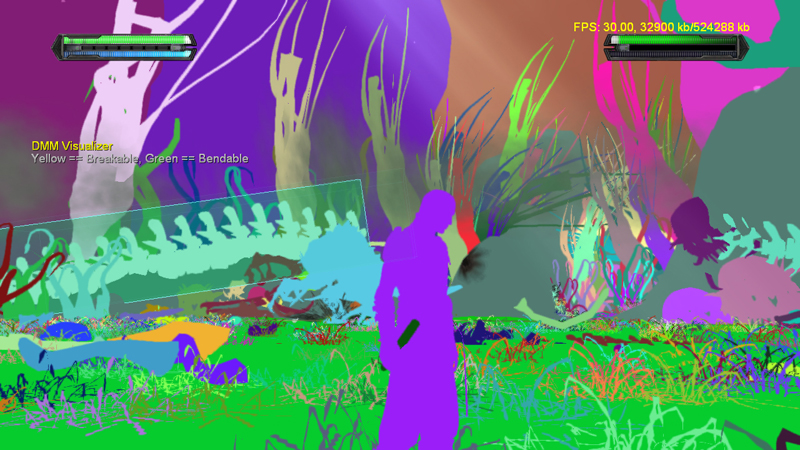 |
| hoth making of | |
| jedi temple making of | |
| bull rancor making of | |
| felucia making of | |
| . Making of Rancor Arena | services | contact | about mirena |
Game: Star Wars: the Force Unleashed
Level: Bull Rancor arena
Credits: Senior Environment Artist.
Detailed credits and process: I was responsible for 3d modeling and texturing of terrain, plants and bones from layout/greyboxing to final pass, creating shaders, AO and Lightmaps, dynamic environment and character lighting, environment variables, adjustment layers, Havok collision. Duties also included optimization and bug fixing. I modeled most terrain and large plants in maya and painted in Zbrush, created tileable normal maps for the terrain in Mudbox. Imported pieces into the Zeno editor and painted the terrain shader masks. Lighting for environment and characters was done in Zeno.
There were three special items on my list: the mud shader for the terrain, the bones shader for the various static meshes and destructibles and setting up the DMM (destructible) bones. On the first two tasks I closely collaborated with ILM's TDs, a feedback loop - I would provide latest geometry and textures, implement new shader and give feedback as to what I thought should change - they would come up with ideas to make the shader look even better. DMM destructibles were setup by our DMM artist - I would provide latest mesh, UV-ed and with shaders and they would setup the cage. I would, in turn, place the destructible in the world.
Here is the mood piece the Concept Artists drew of the arena which was my guide throughout developing the level:
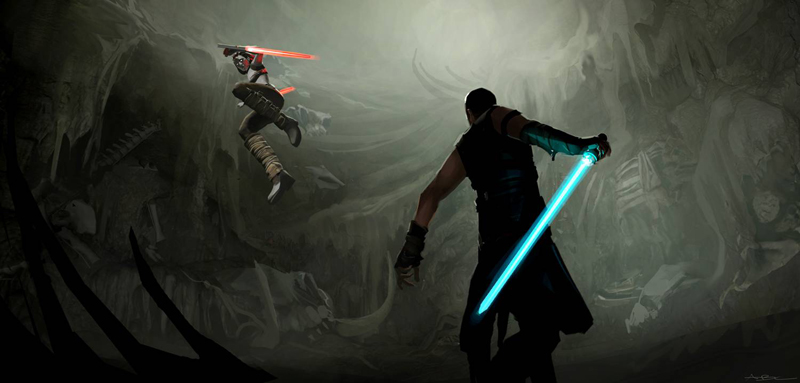
Here is final art of the Rancor Arena Pit:
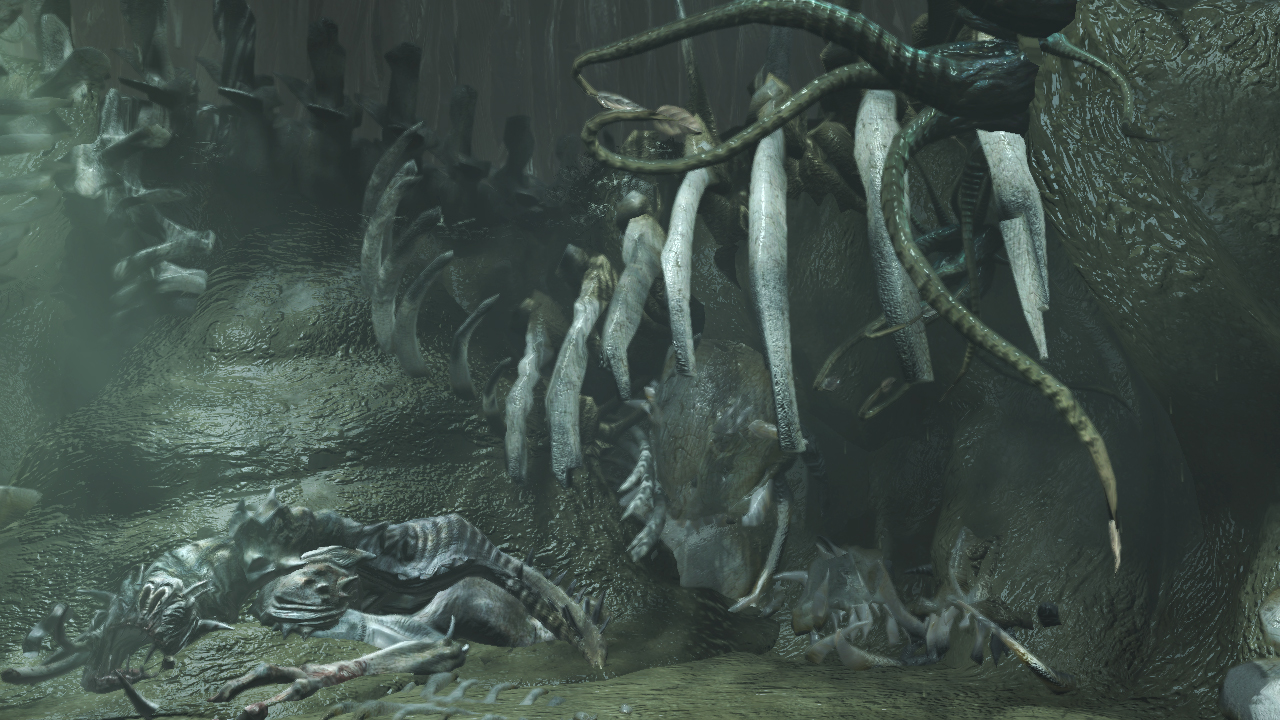
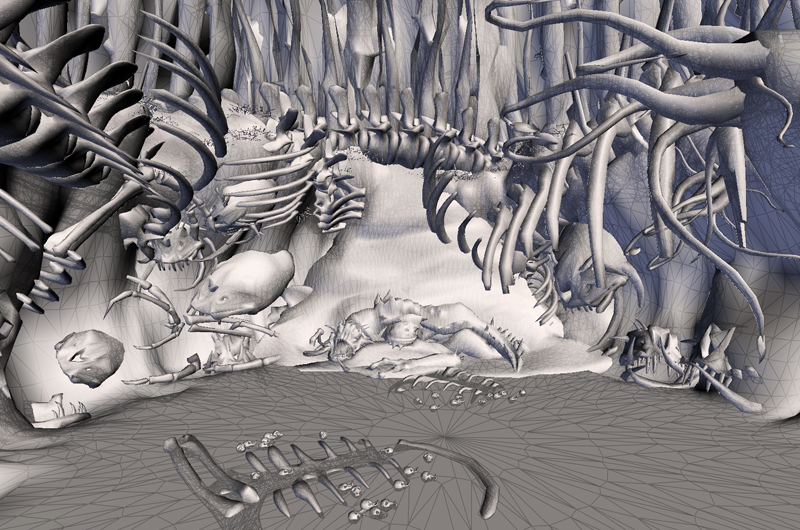
Inspiration for the mood of Rancor Arena was Rembrandt and his manner of dramatic lighting, therefore the key tasks to tackle were lighting and shaders. When I think of lighting, and Rembrandt lighting in particular, this is the first image that comes to mind:
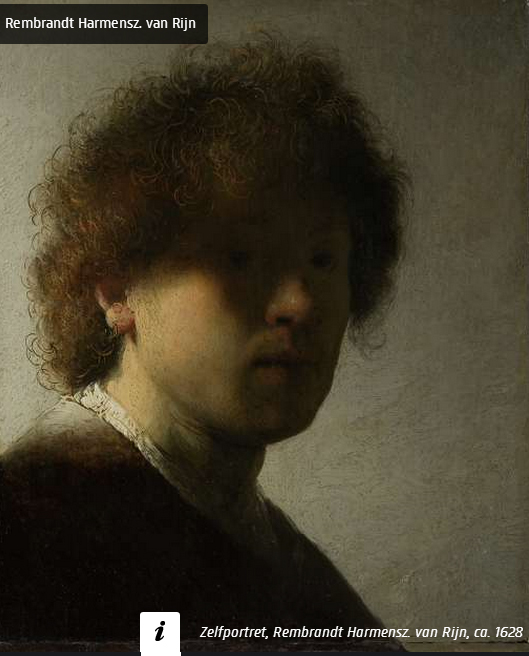
Deep shadows, contrast, muted tones and earthy colors.
When I thought of an inspiration for the boneyard - the graveyard from Pitch Black came to mind. Together, Rembrand's the mood piece and Vin Diesel's Pitch Black, with the latter one of my favorite movies, served as inspiration for various aspects of the level.
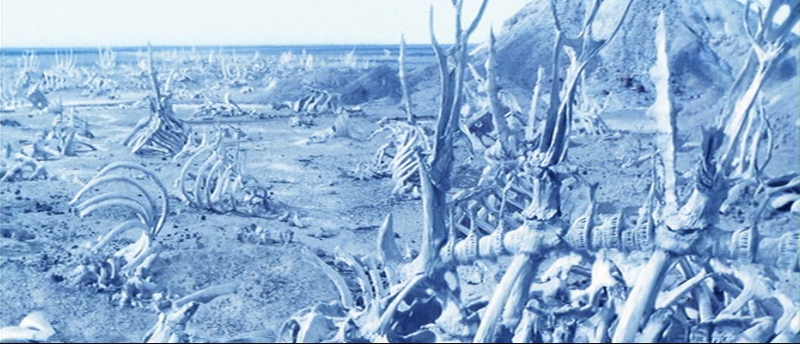
I was working closely with the TD's on creating the muddy terrain shader - we decided on a 3 layered shader blend to be painted via vertex color channels on the terrain. The layers were puddles, wet mud and dry mud, with each mud layer consisting of diffuse, normal, spec and detail map. The puddles layer carried true reflections, procedurally modified with color, texture, distortion and "cloudiness' nodes. Here is a screen of me testing the shader and, specifically, the newly added player distort node for the reflections on the puddle layer:
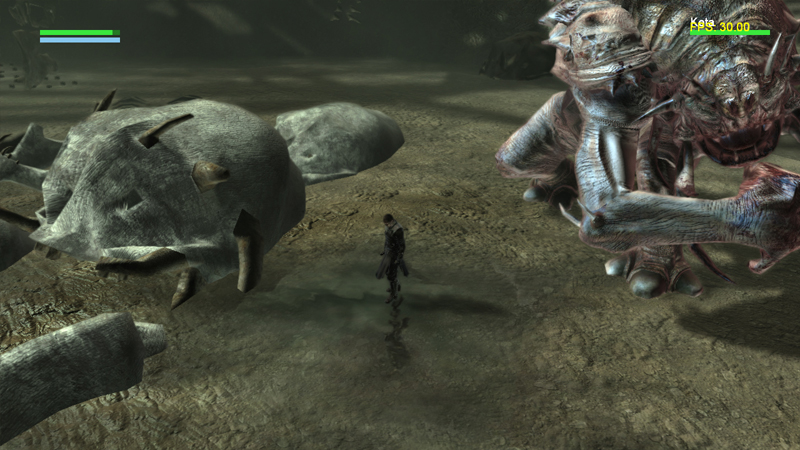
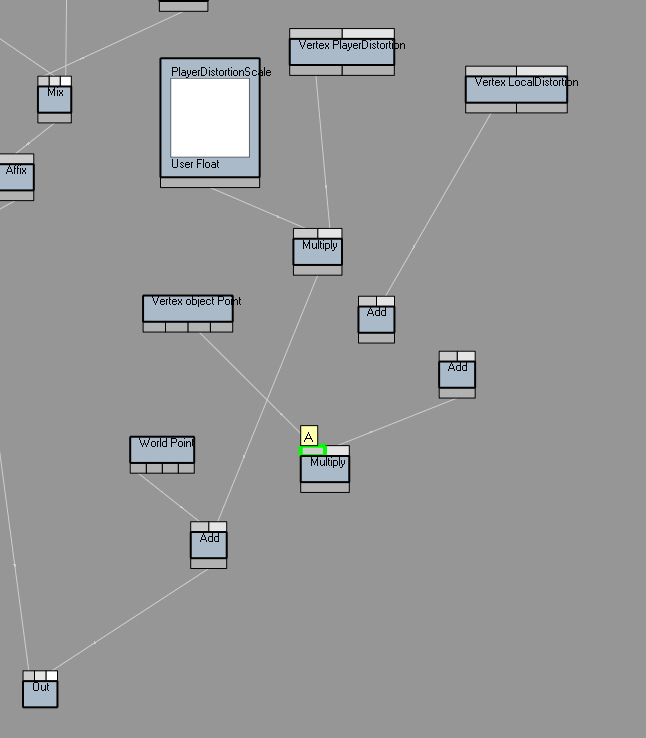
Here is a screen of the mud shader in almost final shape, there's water bed texture, puddles are cloudier on the fringes and better sit in the mud:
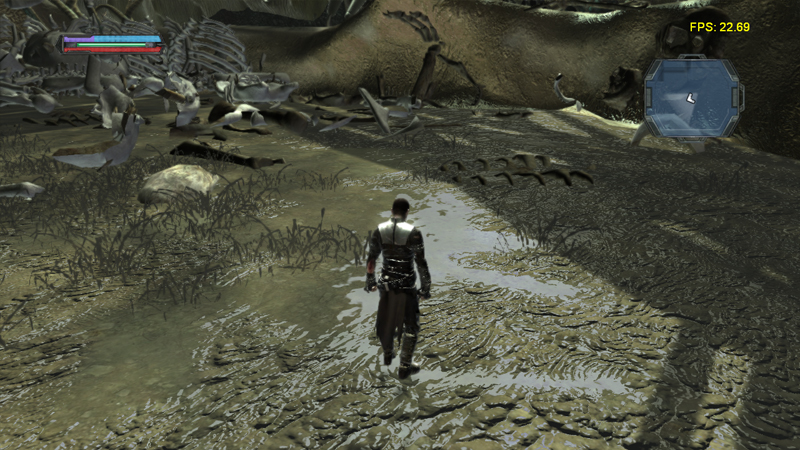
The bone shader was also a 3-ply layered shader, consisting of bone with subsurface scattering node, decayed bone and mud, the latter to help set the bones into the terrain. The shader masks were painted inside Zeno using vertex color channels. In addition to being dynamically lit, each static bone had a lightmap/AO baked in and added as a node in the shader:
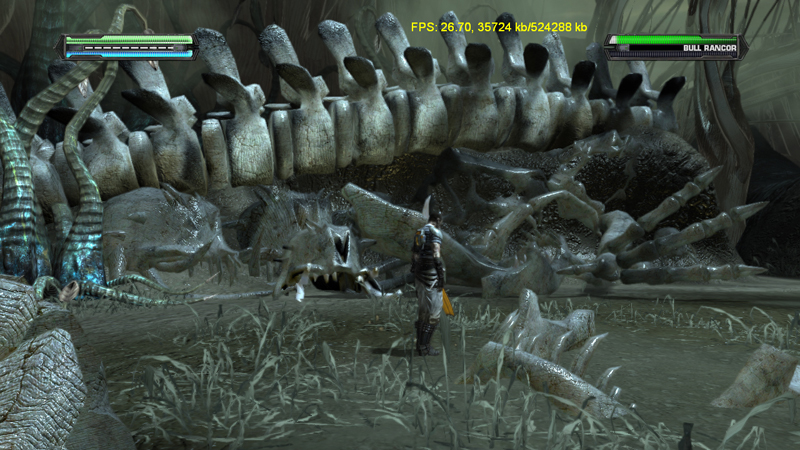
Of course the complex shaders came at a cost, especially when it came to the destructible bones. Unlike other areas in the game - this was a small arena that loaded separately and I felt we could cram a lot up to the budget ceiling and we did. Here is a debug screen at optimization stage of development - we could visualize almost every aspect of what was drawn on screen. Eventually I had to cut on polycount and grass had to go:
